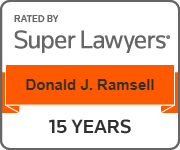The following charts show the penalties for Michigan drunk driving and license suspension violations in Michigan.
OVERVIEW
In July of 2003, the Michigan legislature passed and the Governor signed into law two bills designed to bring Michigan into compliance with the National Highway Transportation Safety Administration's requirement that all states adopt a blood alcohol threshold of .08% for drunk driving offenses. Although the amendments make this change, they includes a number of other significant changes to the existing law. The following are some of the more significant changes.
OPERATING WHILE INTOXICATED
The legislation changes the name of the offense from Operating Under the Influence of Liquor to Operating While Intoxicated. That offense includes both operating with a blood alcohol level of .08% or more, as well as operating while under the influence of alcohol, a controlled substance, or a combination of alcohol and a controlled substance.
OPERATING WHILE IMPAIRED
The legislation retains the offense of Operating While Visibly Impaired. However, there is no longer a blood-alcohol threshold used to prove OWI.
PRESUMPTIONS GONE
Under the prior statue, a person was presumed OUIL if he or she had a BAC of .10% or greater; OWI if he or she had a BAC of greater than .07% but less than .10%; and not impaired if he or she had a BAC of .07% or less. Those presumptions are gone from the new legislation. While it is unlawful to drive with a BAC of .08% or more, there is no longer a presumption that a person is not impaired with a BAC of .07% or less. Thus, it is possible for a prosecutor to charge impaired driving even if a person has a BAC level of .07% or less.
NEW OFFENSE OF DRIVING WITH ANY AMOUNT
OF A CONTROLLED SUBSTANCE
Bound to be one of the most controversial aspects of the new legislation, the statute now includes the offense of Operating with Any Amount of a Schedule 1 Controlled Substance (opiates, opium derivatives, hallucinogens, marijuana, GHB, and ecstasy) or cocaine in the blood stream. This part of the new statute has nothing to do with keeping impaired drivers off the road since most of these drugs can be found in the blood stream days after they were taken while the impairment is usually gone in hours. In fact, with a hair test, it is possible to find these substances in a person's body up to 90 days after the fact. Since the new statute prohibits a person from operating a vehicle if "the person has in his or her body any amount" of a controlled substance, this is presumably not limited to breath, blood or urine. The new offense is treated the same as Operating While Intoxicated in terms of jail time, fines, costs, community service, and licensing sanctions.
IGNITION INTERLOCK DEVICES
The new statute allows the court to require the installation of an ignition interlock device as a condition of probation for both driving while intoxicated and driving with any amount of a controlled substance. Thus, while an offender may have only a six month license suspension from Secretary of State, the court can require the ignition interlock device installed throughout the term of probation (up to two years).
COURT CANNOT ALLOW PLEA TO ZERO TOLERANCE IF ORIGINALLY CHARGED WITH GREATER OFFENSE
The new legislation slightly changes the rules regarding pleas to zero tolerance offenses. Where the old statute allowed the court to accept a reduced plea from another alcohol offense to a zero tolerance offense with agreement of the prosecutor, the new law only allows the court to dismiss the original charge on motion of the prosecuting attorney. Thus, reduced pleas to zero tolerance offenses, while still possible, will be more cumbersome.
PRESUMPTION REGARDING BAC AT TIME OF DRIVING
The new statute slightly changes the presumption regarding a person's blood alcohol level at the time of the offense. The old law allowed, but did not require, the fact finder to presume that a person's BAC at the time of testing was the same as it was at the time of driving. The new law makes that presumption mandatory. While the presumption-like any other legal presumption-may be overcome, it now appears to be the defendant's burden to disprove the assumption by affirmative evidence.
IMPLIED CONSENT SUSPENSION LENGTHENED
The new law lengthens the time of implied consent suspensions to one year for a first implied consent refusal and five years for all subsequent implied consent refusals within a 7 year period.
MINOR TRANSPORTING ALCOHOL - IMPOUNDING OWNER'S VEHICLE
Within 30 days of a minor's conviction for transporting alcohol in a motor vehicle, the arresting officer may make a complaint against the owner of the vehicle to show cause why the vehicle should not be impounded. If the court determines that the vehicle was being driven with the express or implied consent of the owner (whether or not the owner knew the minor was transporting alcohol), and if the court determines that the vehicle is not needed by the owner in the direct pursuit of the owner's employment, the court may order the vehicle impounded for a minimum of 15 days and a maximum of 30 days.
CHANGES TO SENTENCING GUIDELINES OV-3 AND OV-18
The new law changes the sentence guidelines scoring to reflect the new lower .08% BAC threshold. Thus, OV-3 includes 50 points for death resulting from a drunk driving offense where the offender had a BAC of .08% or more. Similarly, OV 18 does away with the 5 points for a BAC of .07% or more but less than .10%, and folds all offenses with a BAC of .08% or more but less than .15% into the 10 point category.
EFFECTIVE DATE AND SUNSET PROVISION
The new statute takes effect September 30, 2003. For some reason, it includes a sunset provision, making the new .08% BAC threshold expire on October 1, 2013, at which time the BAC threshold reverts back to .10%.
![]()








